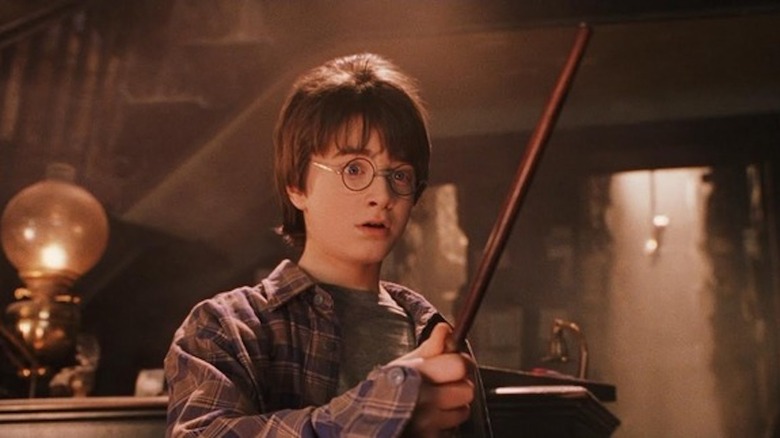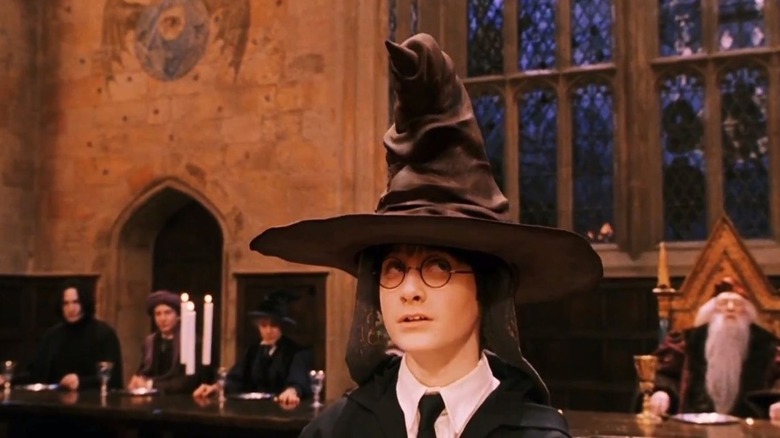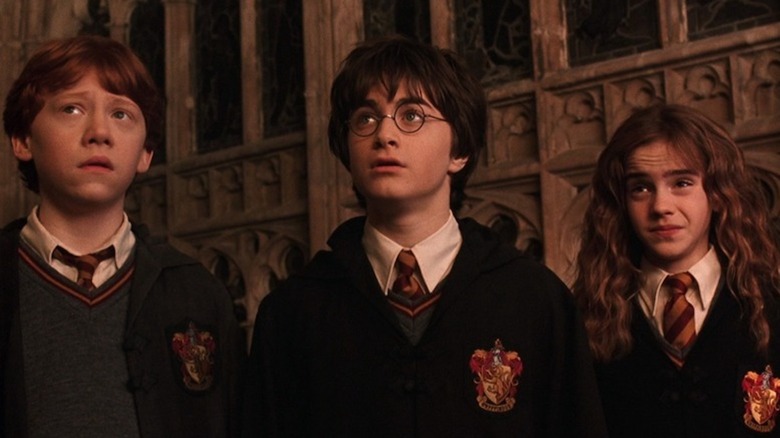Terry Gilliam Feels Lucky To Have Missed Out On Harry Potter And The Sorcerer's Stone
When J.K. Rowling's popular "Harry Potter" series of books enchanted children and adults the world over, a Hollywood bidding war erupted. Every studio in town wanted the rights to the publishing phenomenon. Warner Bros. ultimately won out, at which point the hard work of finding the right filmmaker to launch the cash-cow franchise began.
Steven Spielberg was the obvious choice, but he envisioned the adaptations as an animated series. This was too limiting for WB, which turned the project into the most coveted open assignment in the industry. Many of the most desired directors were too auteurist for the assignment. Peter Weir, Alan Parker and M. Night Shyamalan had a distinctive style that might've overwhelmed or outright clashed with the mainstream-skewing material.
These films needed a steady hand, someone who could deliver a homogenized, four-quadrant take on the family-friendly books. They needed, and got, Chris Columbus. But if Rowling had her way, this would've been Terry Gilliam's franchise. And this would've made him miserable.
An uncompromising director and a compromised film
In a 2009 interview with Total Film, Gilliam expressed relief that he'd dodged the boy-magician property. Per Gilliam:
"That was one of my lucky moments. I would have gone crazy. It's a f***ing factory, working on Harry Potter. It is. The studios are staking everything on the success of those movies."
Gilliam went on to lament the studio parameters of the assignment. Having butted heads with Universal honcho Sid Scheinberg prior to the 1985 release of "Brazil," the filmmaker knew he was headed for contentious production if he surrendered to the studio machinery. As he told Total Film:
"It was way too expensive. Too much at stake. So they [the studio bosses] interfere. It's about serving something higher than yourself. It's the film. The film is God and I'm worshipping ... While I'm making it I become a zealot. Basically, I'm like a suicide bomber when it comes to my films!"
Gilliam's intensity was bad news for another reason. The man had a checkered track record when it comes to directing children, and Academy Award-winner Sarah Polley, who starred in his "The Adventures of Baron Munchausen," is in possession of those receipts.
Gilliam and child actors are a poor combination
Polley has been reckoning with the terror of this production for years. She wrote an open letter to Gilliam when he was directing another child actor in his 2005 film "Tideland," and cautioned him against putting the young girl through the ringer as he'd done to Polley on the set of "Munchausen."
Polley later wrote an essay for The Guardian, in which she went into painful detail about the horror of starring in Gilliam's 1988 film. She was thrust into dangerous situations with loads of explosives, and suffered ear-ringing trauma. Gilliam has apologized to Polley, but this was long after the making of "Harry Potter and the Sorcerer's Stone." In 2001, he might've been inclined to push too hard, and make life miserable for Daniel Radcliffe, Emma Watson and Rupert Grint.
In sheer artistic terms, Gilliam does his best work when he's given a good bit of leash. "Time Bandits," "Brazil" and "12 Monkeys" are three of the most richly imagined worlds you'll ever see on a movie screen. As expansive as the Wizarding World is, "Harry Potter and the Sorcerer's Stone" would've been too confining. It was best that Rowling's treacherous idea was not indulged, and the director and these kids (now adults!) never had to cross paths.


